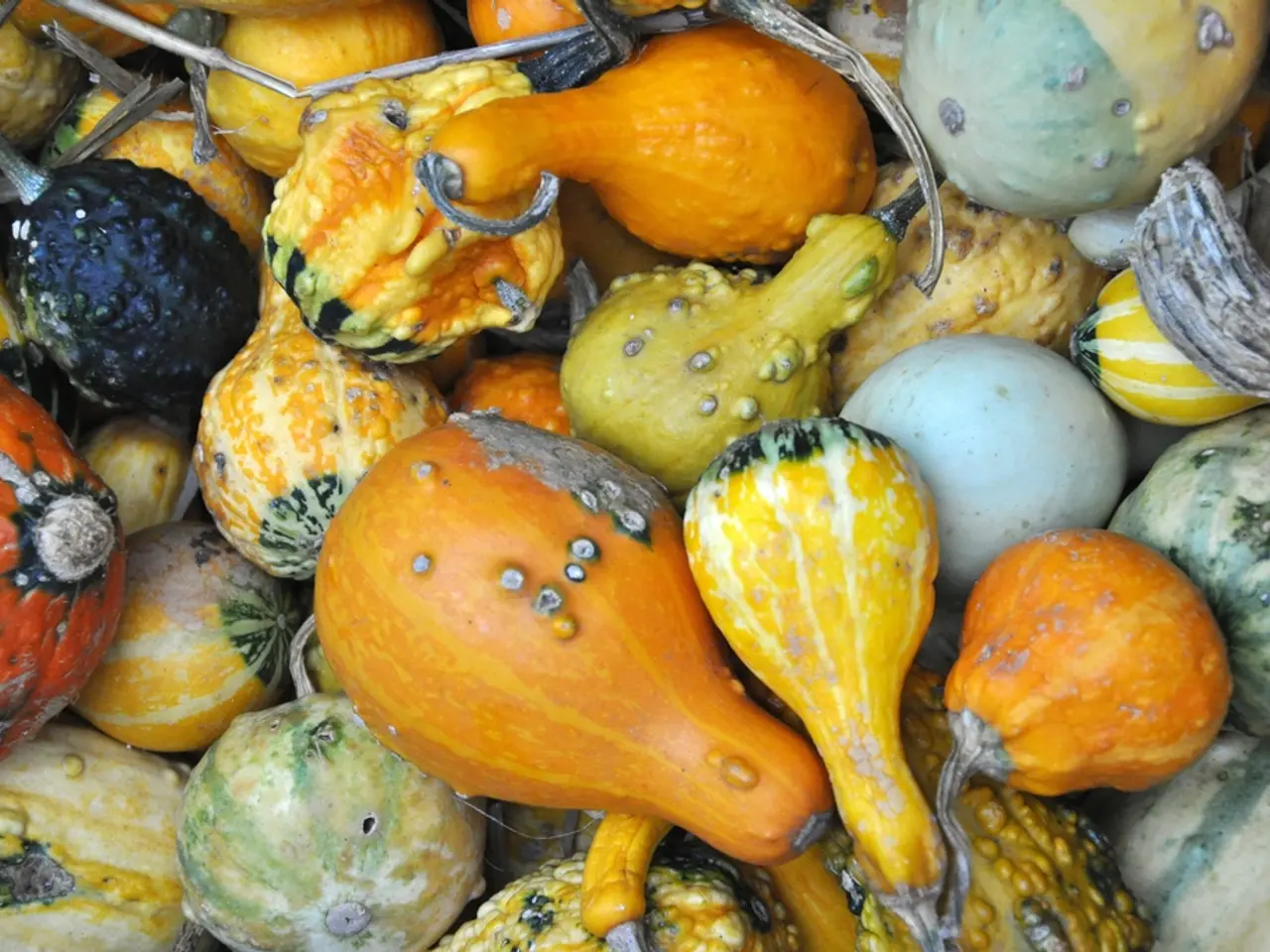Fermented Vegetables: Growing Your Own Nutritious Alternatives at Home
In the quest for a healthy immune system, a new recipe for cultured vegetables has emerged as a potential ally in the fight against flu. The "Cultured Veggies for Flu Prevention" recipe, featuring jicama, green cabbage, spinach, apple, onion, garlic, orange zest and juice, and a starter culture, could provide an immune-boosting nutritional powerhouse.
The secret behind this recipe lies in the combination of fermented vegetables with a starter culture, such as Lactobacillus plantarum. This beneficial bacteria supports a healthy gut microbiome, which is crucial for immune function and may enhance resistance to pathogens causing respiratory infections like the flu. Using a starter culture helps maintain higher levels of beneficial bacteria, amplifying this effect.
Ingredients like garlic, rich in allicin, orange juice and zest, brimming with vitamin C, and cabbage and spinach, packed with immune-boosting nutrients and compounds with antiviral and anti-inflammatory properties, further contribute to the recipe's immune-enhancing properties. Vitamin C supports white blood cell production essential to fighting infections, while garlic's potent antimicrobial effects and immune-boosting properties can help combat the flu.
Consuming fiber-rich vegetables like jicama, cabbage, and spinach also nourishes beneficial gut microbes, reinforcing the immune system.
While there is no direct clinical evidence that this specific combination or fermented veggie recipe alone can prevent the flu entirely, the available research supports a broader nutritional and gut health approach to strengthening the immune system to reduce infections and severity.
To prepare the cultured veggies, start by shredding or chopping the jicama, green cabbage, spinach, apple, yellow onion, and garlic. Next, add the orange zest, juice, and starter culture to the jar. Pack the shredded ingredients firmly into the jar, leaving an inch or two for expansion during fermentation. Sprinkle the mixture with fine sea salt and cover it with water, leaving an inch or two at the top. Seal the jar tightly and let it sit on the counter for 6 days before moving it to the refrigerator.
The recipe calls for 1 medium jicama, 1/2 head of green cabbage, 2 ounces of spinach, 1 medium apple, 1 yellow onion, 1 clove of garlic (minced), 1.5 teaspoons of fine sea salt, and a packet of starter culture. The mixture should be prepared in 2 quart glass canning jars or a half gallon vessel.
In summary, incorporating this cultured vegetable mix into your diet can be a valuable part of an overall immune-supportive diet. While it should not replace traditional flu prevention measures like vaccination, hygiene, and medical care, it can be a beneficial addition to your daily routine. Eating these cultured veggies may help reduce the risk or severity of flu when consumed regularly.
The "Cultured Veggies for Flu Prevention" recipe, with its focus on fermented vegetables like jicama and cabbage, aims to support a healthy gut microbiome via beneficial bacteria, such as Lactobacillus plantarum, which is crucial for immune function and may enhance resistance to pathogens like the flu. Additionally, ingredients rich in vitamins and immune-boosting nutrients, like garlic, orange juice and zest, spinach, and apple, contribute to the recipe's immune-enhancing properties, making it a potential ally in health-and-wellness, fitness-and-exercise, and nutrition, as part of a healthy-diets regimen.




